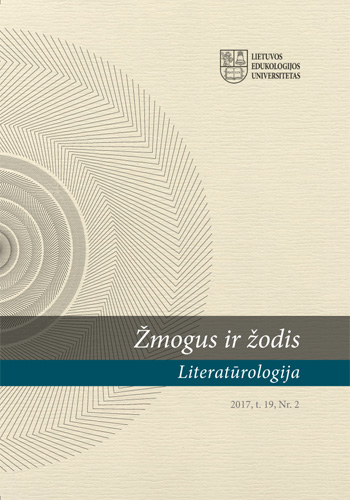Maironio politinės pasaulėžiūros raiška ankstyvuoju tautinio sąjūdžio laikotarpiu
The Expression of Maironis’ Political Worldview in the Early Stage of Lithuanian National Awakening
Author(s): Manfredas ŽvirgždasSubject(s): Christian Theology and Religion, Political history, Lithuanian Literature, Nationalism Studies, Theory of Literature
Published by: Vytauto Didžiojo Universitetas
Keywords: Lithuanian press ban; ethnolinguistic nationalism; modernity; national revival; “The Spring of Nations”; Christianity; ideology;
Summary/Abstract: This article discusses the role of the Lithuanian national poet, Jonas Mačiulis-Maironis (1862–1932), in the transformations of ethnolinguistic nationalism in 1883-1895. During that period, Maironis was a member of a small group of young Catholic clergymen who chose to collaborate in the illegal press dominated by the nationalist intelligentsia. He regarded the nation and the country’s nationalist community as the greatest value. Maironis’ public activities and allegiance to informal groups are taken into account, as well as his first publications in the newspapers, Auszra and Szviesa (1885-1887). During that critical period, literary works were regarded as fitting substitutes for political declarations. The future founder of the Lithuanian lyrical canon, Maironis, was concerned about the formation of the elite “high culture.” However, he was also able to appeal to semiliterate masses of peasantry. Maironis emphasized the importance of fellowship and political unity at the time when ideological differentiation took place and modern style left- and right-wing political parties were established. Romantic nationalism and allusions to European (and from Russian point of view, pan-Slavic) Symbolism of “The Spring of Nations,” moderate social criticism, conservatism, and striving for compromise characterize the worldview of early Maironis.
Journal: Žmogus ir žodis
- Issue Year: 19/2017
- Issue No: 2
- Page Range: 16-32
- Page Count: 17
- Language: Lithuanian

